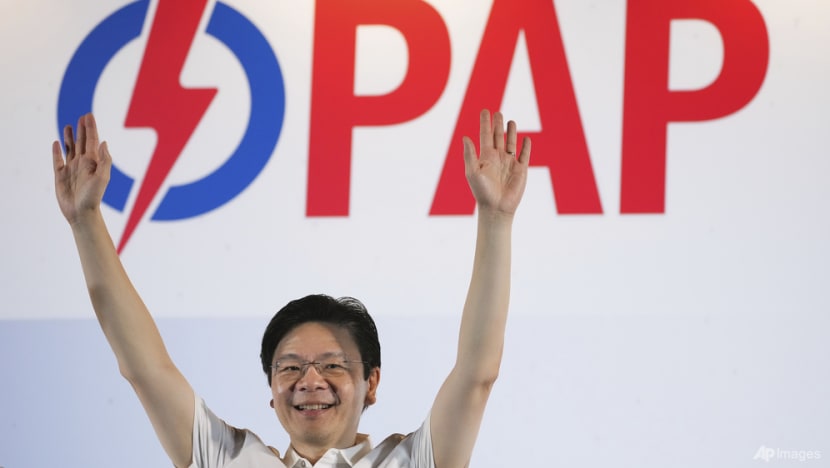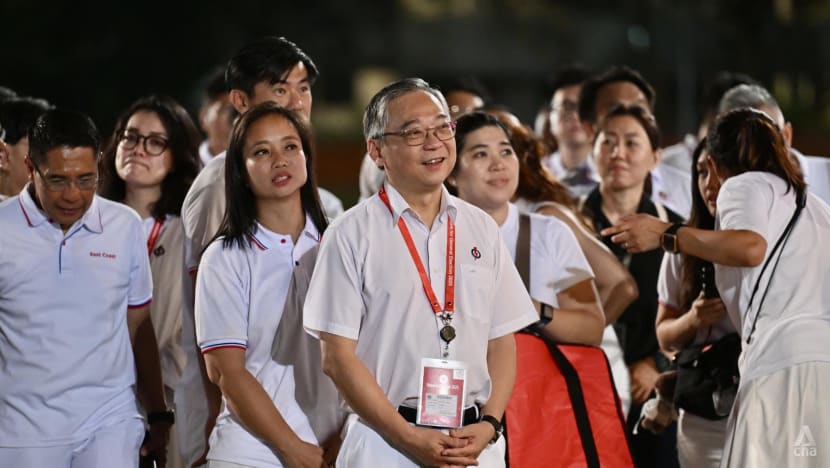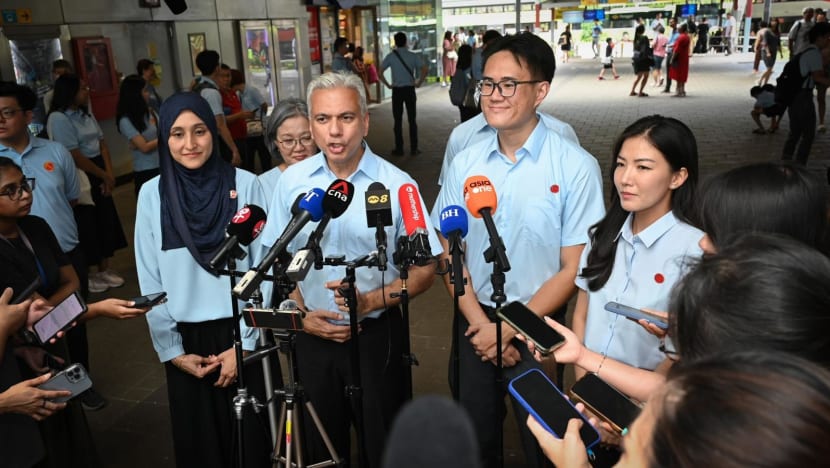Snap Insight: GE2025 – early lessons for PAP and opposition parties alike
Singapore handed the ruling party a decisive victory, but it wasn’t just due to the “Trump effect”, says former Nominated Member of Parliament Nicholas Fang.

Prime Minister Lawrence Wong thanks his supporters and voters on May 3, 2025. (Photo: AP/Vincent Thian)

This audio is generated by an AI tool.
SINGAPORE: Historically, an uncertain global environment might have boded well for the incumbent. But the result from Singapore’s last election in 2020, held amid the COVID-19 pandemic, seemed to suggest that the ruling People’s Action Party (PAP) was not viewed by all voters as the option for a theoretical “flight to safety”.
But on Saturday (May 3), the country delivered a strong endorsement of Prime Minister Lawrence Wong, in his first election test as PAP secretary general and as the leader of the fourth generation (4G) team.
With 65.57 per cent of the national vote, Mr Wong has bucked the trend: In Singapore’s history, each new prime minister contesting his first election has performed worse than the previous polls, by about 2 to 8 percentage points. In contrast, Mr Wong posted an improvement of more than 4 percentage points from 2020.
Mr Wong had asked voters for a strong mandate to enable him and his team to lead the country more effectively, especially given the global geopolitical turmoil and uncertainty in the face of two ongoing military conflicts and a burgeoning global trade war.
There are clear grounds to say that he has received it.
WHAT DROVE A STRONG PERFORMANCE
While there was some scepticism about whether the PAP could reverse the downward trend seen in the 2020 election, the situation facing Singaporeans is quite different today.
The COVID-19 pandemic and the measures deployed to address the crisis, including a circuit breaker, mask mandates and other restriction measures, as well as the intense uncertainty over the outbreak of a new and unknown virus, meant that some voters were unhappy over why an election had to be called under such conditions.
In contrast, the current tariff turmoil sparked by United States President Donald Trump has raised serious doubts about the possible impact on inflation and cost of living, a looming economic recession, and challenges in the job market. Potentially, this led more voters to shy away from any future turbulence in the form of political upheaval.
On its part, the PAP took some risks in the 11th-hour manoeuvrings of Nomination Day on Apr 23, notably Deputy Prime Minister Gan Kim Yong’s move to a different constituency, and ensuing warnings about potentially losing an experienced minister.
There was some concern this would backfire if voters felt like they were treated as political pawns. This issue was taken up by opposition parties during rallies and on social media, prompting a concerted response by the PAP, to shore up support for Mr Gan in Punggol against a slate of Workers’ Party newcomers.However, the rhetoric online and in rally speeches seems to have been popular as entertainment, but was ultimately not sufficient in the polling booths. The gambit paid off, and it’s likely because the PAP narrative of experienced and stable leadership, coupled with a dedicated effort to engage voters on the ground, still has broad appeal among Singaporeans.
At the same time, the leading opposition Workers’ Party (WP) deployed a relatively conservative strategy.
Despite a raft of qualified candidates who captured the public imagination, the WP was unable to build on its momentum and secure another constituency.
If more of its senior leadership, including secretary general and Leader of the Opposition Pritam Singh and party chair Sylvia Lim, had ventured out of its Aljunied stronghold and contested in other constituencies, the outcome may have been different.


MESSAGE FROM VOTERS
While it will take some time for the dust to fully settle around GE2025, there are some early signs of possible lessons for political parties looking to succeed in Singapore in the years ahead.
The call for more support for opposition to check the PAP seems to have lost its allure, other than in some WP-contested areas. This seems to suggest that the quality of the opposition opponent matters to voters, rather than just a generic desire for checks and balances.
As such, some soul-searching about how to build their brand and appeal among Singaporeans will be required if opposition parties are to improve on their performance going forward.
For the ruling party, the strong mandate for Mr Wong and his 4G team will be welcome as they seek to establish themselves and also address the broader geopolitical and domestic challenges facing Singapore and Singaporeans.
If the latest electoral contest is anything to go by, there will likely be increasing competition for the PAP in future polls. As the electorate and political environment continues to change and evolve, it will be imperative for all parties to do so as well.
Nicholas Fang is senior advisor for The Asia Group, and managing director of strategic consultancy Black Dot. He is a former nominated member of parliament.
















